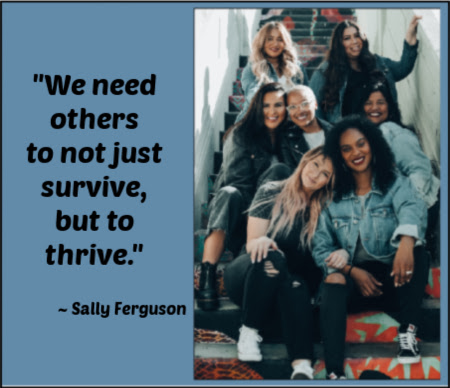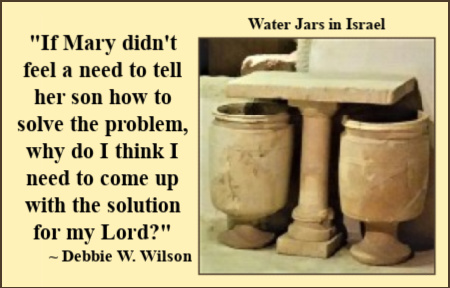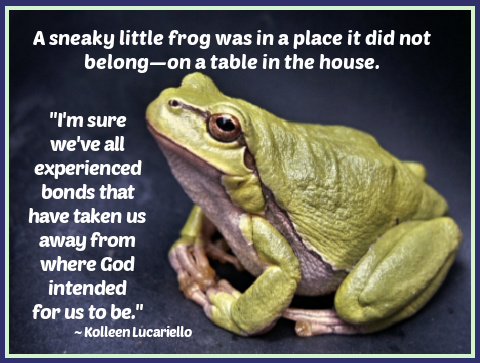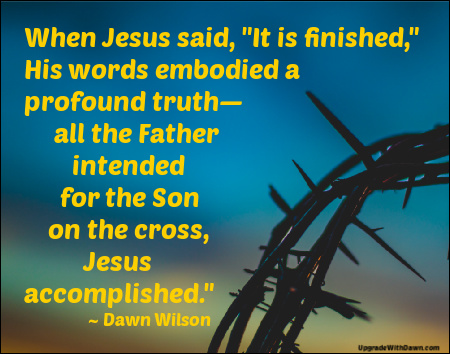The Mother of Little Acts
Kathy Carlton Willis is one of the most encouraging women I know. In this Mother's Day UPGRADE, she has a message for all women about how we can "mother" others through little acts of kindness and love.

"Since I wasn't blessed with children, I never know how to feel on Mother's Day," Kathy says. "But God gives all of us, whether a parent or childless, ways to be a mother to others."
I (Dawn) have always felt a lttle upset for those who must face Mother's Day with sadness. Maybe it's a woman who has no children, or a child whose mother has passed away. I was so glad to read Kathy's positive words. We can all learn to "mother" others and bless them in countless ways.
It may not take away the sting of loss or sorrow, but it gives us a way to channel our feelings for good.
Kathy continues . . .
When I look up the word "mother" in my handy thesaurus, it says a mother protects, nurses, tends to, pampers, nurtures, raises, looks after, cares for.
In Hosea, Isaiah, Matthew, and Luke, God or Jesus are described as mother figures. To be godly, we too can take on the character traits of a good mother.
During this pandemic, I've witnessed so many doing amazing acts of kindness. What have we learned during this time about showing love?
All these little things amount to big ways we can help others. Lives were touched from more than six feet apart!
There are also many unnoticed acts of love.
Moms have to do thankless tasks. We can all take up the challenge to be unseen do-ers. Not seeking credit but spreading joy.
It doesn’t take a big action to have a big effect.
God sees every unseen act of kindness or service.
Little Things in the Bible
- The Widow at Zarephath used flour and oil and a few sticks for a fire to make bread to feed Elijah. She had enough for the remainder of the drought. (1 Kings 17:7-24)
- The tongue. In the same way, the tongue is a small thing that makes grand speeches. But a tiny spark can set a great forest on fire. (James 3:5 NLT)
- The mustard seed. (Matthew 13:31-32; Luke 17:6)
- The widow who gave her last two coins. (Mark 12:41)
- The five-loaves-and-two-fish happy meal the mom packed to send with her boy. (Matthew 14:17; John 6:9)
- The sparrow. (Matthew 10:29-31)
- The number of hairs on our heads. (Luke 12:7)
- Moses’ rod. (Exodus 4:1-5, 17, 20)
- David’s sling and five smooth stones. (I Samuel 17:40, 49)
- Shamgar’s ox goad. (Judges 3:31)
- Samson’s jawbone of a donkey. (Judges 15:14-16)
In any struggle, God can use even the insignificant thing that is already in our hands to give us victory!
When Peter and John saw the crippled man at the gate called Beautiful, asking for alms, they didn’t have money to give, but through Jesus Christ, had something greater.
But Peter said, “I have no silver and gold, but what I do have I give to you. In the name of Jesus Christ of Nazareth, rise up and walk!” (Acts 3:6 ESV)
Unseen Acts
Moms, caregivers, and others constantly perform acts of tiny service that go unseen. Not a day goes by without these little details.
If you’ve ever felt like your day is filled with mundane tasks, unnoticed by others and seemingly unimportant, I have a message for you.
Your affirmation and appreciation won’t always come from the recipients of your loving acts.
But God sees. He knows.
Your acts aren’t unseen, and you—you are not invisible. God not only notices you, He delights in you.
Zephaniah 3:17 (NLT) says:
For the Lord your God is living among you.
He is a mighty savior.
He will take delight in you with gladness.
With his love, he will calm all your fears.
He will rejoice over you with joyful songs.
I love the idea of God singing songs over me!
He takes delight in us. He notices us.
Think what would happen if we made a commitment to give freely. We’d be enriched by it and others will know they are cared for.
One gives freely, yet grows all the richer; another withholds what he should give, and only suffers want. (Proverbs 11:24 ESV)
Everyday Mothering
- Notice others. Say their names. Know their hearts. Pay attention to what they love.
- Do a tiny act of kindness. When we serve others, it’s not insignificant. Sometimes, the simpler the act, the more it touches the recipient.
- Don’t allow the mundaneness of everyday life to overtake being connected in community.
How will you “mother” others this week?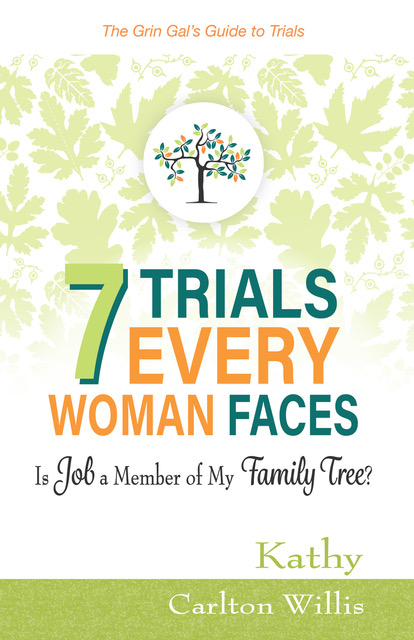
 Kathy Carlton Willis is God’s Grin Gal. She writes and speaks with a balance of funny and faith—whimsy and wisdom. Over a thousand of Kathy’s articles have been published and she has several books in her Grin Gal brand. Her latest book is 7 Trials Every Woman Faces. Kathy is active as a book industry pro, and her coaching group, WordGirls, propels women toward their writing goals. She graduated with honors from Bible College and has served 30+ years in full-time ministry. Check out her Grin & Grow Break video devotions on social media. Learn more about Kathy here.
Kathy Carlton Willis is God’s Grin Gal. She writes and speaks with a balance of funny and faith—whimsy and wisdom. Over a thousand of Kathy’s articles have been published and she has several books in her Grin Gal brand. Her latest book is 7 Trials Every Woman Faces. Kathy is active as a book industry pro, and her coaching group, WordGirls, propels women toward their writing goals. She graduated with honors from Bible College and has served 30+ years in full-time ministry. Check out her Grin & Grow Break video devotions on social media. Learn more about Kathy here.
Graphic adapted, courtesy of Pasja1000 at Pixabay.
 Post a Comment → Posted on
Post a Comment → Posted on  Friday, May 7, 2021 at 10:23AM
Friday, May 7, 2021 at 10:23AM  Acts of kindness,
Acts of kindness,  Acts of love,
Acts of love,  Everyday mothering,
Everyday mothering,  God sees you,
God sees you,  God sings over you,
God sings over you,  Kindness,
Kindness,  Little Things,
Little Things,  Little things iin the Bible,
Little things iin the Bible,  Mother,
Mother,  Mother's Day,
Mother's Day,  Mothers,
Mothers,  Unseen acts of love Upgrade Your Life
Unseen acts of love Upgrade Your Life  Kindness,
Kindness,  Mother's Day
Mother's Day 




